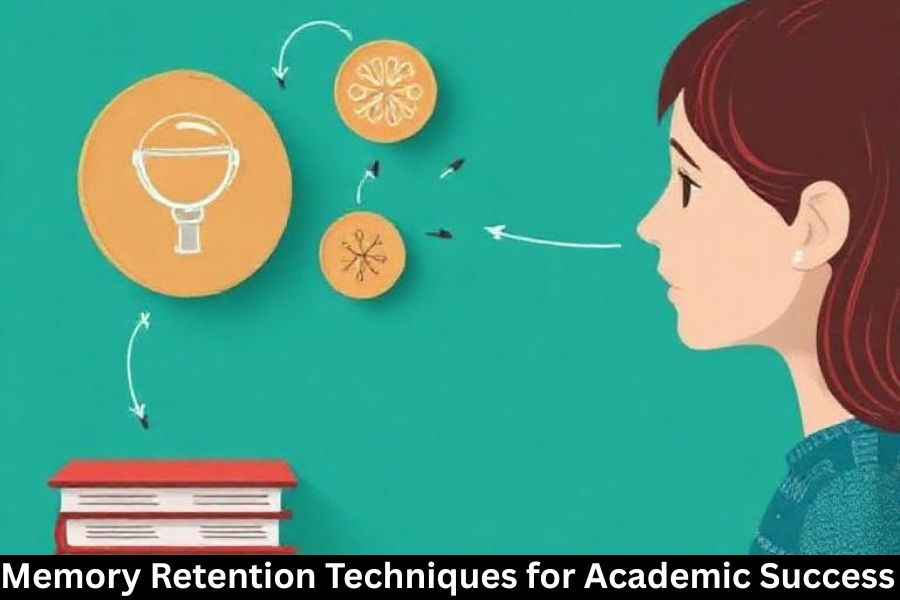Ever stared at a textbook for hours and felt like your brain just… froze? You’re not alone. Memory retention is more than just “remembering”; it’s about how efficiently your brain stores and recalls information. In academic life, mastering this skill can make the difference between passing exams and excelling with confidence. Luckily, memory isn’t fixed—there are proven techniques that can train your brain for better recall and long-term success.
Understanding Memory
Types of Memory: Short-term vs Long-term
Think of memory as a two-tier storage system. Short-term memory is like a sticky note—it holds information briefly before it either disappears or moves into long-term storage. Long-term memory, on the other hand, is like a vast library, storing everything from your first bicycle ride to complex calculus formulas.
How Memory Works in the Brain
Memory happens in stages: encoding (processing information), storage (keeping it), and retrieval (recalling it). The hippocampus plays a key role in transferring short-term memories into long-term ones, while the prefrontal cortex helps organize and access those memories efficiently.
The Science Behind Learning and Retention
The Role of Neuroplasticity
Your brain isn’t static—it adapts! Neuroplasticity is your brain’s ability to reorganize itself by forming new neural connections. The more you practice recalling information, the stronger these pathways become, making it easier to remember later.
Memory Consolidation During Sleep
Ever noticed that pulling an all-nighter leaves you foggy? That’s because sleep consolidates memories. During deep sleep, your brain strengthens connections between neurons, turning newly learned information into lasting knowledge.
Effective Study Habits
Spaced Repetition
Instead of cramming, spread out your study sessions over days or weeks. Spaced repetition leverages the brain’s natural forgetting curve, reinforcing memories just as they begin to fade.
Active Recall
Don’t just re-read notes. Test yourself! Asking questions and trying to retrieve information actively strengthens neural connections, making recall easier in exams.
Interleaving Techniques
Mix subjects or topics during study sessions. This strategy, called interleaving, helps the brain recognize patterns and connections, boosting flexible thinking and retention.
The Role of Nutrition and Hydration
Brain-Boosting Foods
Fuel your brain! Omega-3 fatty acids from fish, antioxidants from berries, and vitamins from leafy greens all support cognitive function. A well-fed brain remembers better.
Importance of Staying Hydrated
Even mild dehydration can reduce concentration and memory. Keep water nearby during study sessions to keep your neurons firing at full speed.
Mindset and Mental Health
Stress Management for Memory
Stress releases cortisol, which can interfere with memory formation. Techniques like deep breathing, yoga, or short breaks help reduce stress and improve cognitive performance.
Meditation and Mindfulness Practices
Mindfulness strengthens attention and working memory. Even 10 minutes a day can improve focus, helping your brain retain information more efficiently.
Using Mnemonics and Memory Aids
Acronyms and Visualization Techniques
Mnemonic devices like acronyms (“PEMDAS” for math order of operations) or vivid mental images can make abstract information easier to remember.
Mind Mapping for Better Retention
Mind maps visually connect concepts, creating pathways in your brain that mimic natural memory networks. They’re perfect for complex subjects like biology or history.
Digital Tools and Apps for Memory Improvement
Note-taking Apps
Apps like Notion or Evernote help organize study material in a structured, retrievable way. Highlight, categorize, and revisit notes for better recall.
Spaced Repetition Software
Tools like Anki or Quizlet use spaced repetition algorithms to schedule review sessions, making sure you review information just before you forget it.
Practical Daily Routine to Boost Memory
Morning and Evening Practices
Start the day with light exercise or meditation to wake up your brain. At night, review material briefly before sleep to strengthen memory consolidation.
Consistency and Habit Formation
Consistency beats intensity. A 30-minute study every day is far more effective than a 4-hour cram. Habits reinforce neural pathways and create long-lasting memory retention.
Common Mistakes to Avoid
Cramming
Cramming may give a temporary boost, but it overloads your working memory and weakens long-term retention. Slow, structured learning wins every time.
Multitasking During Study
Switching between tasks splits attention, making it harder to encode memories. Focus on one subject at a time for maximum retention.
Conclusion
Memory retention is a skill, not a gift. By understanding how your brain works, practicing effective study techniques, nourishing your mind and body, and avoiding common pitfalls, you can dramatically improve your ability to retain and recall information. Academic success isn’t just about hard work—it’s about smart work. Make these strategies a daily habit, and watch your memory transform.
FAQs
1. How long should I study for optimal memory retention?
Short, frequent sessions (25-50 minutes) with breaks are more effective than marathon study sessions. The brain retains information better when it’s not fatigued.
2. Can exercise really improve memory?
Absolutely! Aerobic exercise increases blood flow and promotes neuroplasticity, improving both focus and memory recall.
3. Are memory supplements effective?
Some supplements, like omega-3s and certain vitamins, can support brain health, but they’re most effective when paired with good sleep, nutrition, and study habits.
4. How does sleep affect memory?
Sleep consolidates memories, transferring them from short-term to long-term storage. Lack of sleep disrupts this process, making it harder to recall information.
5. Can digital tools replace traditional study methods?
Not entirely. Digital tools are excellent for organization and spaced repetition, but active recall, hands-on practice, and consistent study habits remain essential.

